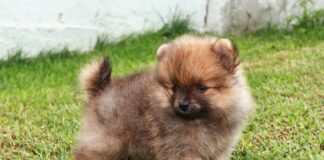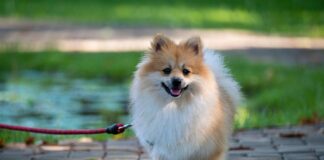Rabbits are herbivores, which means their diet is entirely plant-based. As beloved pets, they rely on their caregivers to provide them with the proper nutrition to maintain a long and healthy life. In this guide, we’ll explore what to feed a rabbit, why their diet is important, and how to make sure they receive a balanced and nutritious mix of foods.

Understanding a Rabbit’s Digestive System
Before diving into the specifics of rabbit food, it’s important to understand a bit about their digestive system. Rabbits have a unique digestive tract that requires a high-fiber diet. Fiber helps them digest food properly and maintain their gastrointestinal health. In fact, a rabbit’s stomach and intestines are designed to process large amounts of plant matter, such as hay and leafy greens, to keep things moving smoothly.
Rabbits have two types of droppings: one that is soft and moist, which they re-ingest, and another that is dry and round. The process of re-ingesting their soft feces is called coprophagy, and it’s essential for absorbing nutrients that would otherwise be lost. This means a rabbit’s diet needs to support this unique digestive behavior by providing foods rich in fiber.
The Essentials of a Rabbit’s Diet
A well-balanced diet for a rabbit includes a variety of foods to ensure they receive the right nutrients. Here are the key components of a rabbit’s diet:
- Hay: The Cornerstone of a Rabbit’s Diet Hay is the most important part of a rabbit’s diet. It provides the fiber necessary for good digestion and helps prevent dental problems, which are common in rabbits. High-fiber hay promotes the proper wearing down of a rabbit’s teeth, which grow continuously throughout their life. Without enough fiber, rabbits can suffer from malocclusion (misaligned teeth), which may require costly veterinary treatment.
The best types of hay for rabbits include:
- Timothy Hay: This is the most popular choice and comes in different cuts (1st, 2nd, and 3rd), with 1st cut being the most fibrous and suitable for adult rabbits.
- Meadow Hay: Another great option, meadow hay is high in fiber and comes from grasses that grow in natural meadows.
- Oat Hay: This hay is less common but still a good choice, especially if you can find it free of seeds.
- Orchard Grass Hay: This variety is softer and sweeter-smelling, making it a good choice for picky rabbits.
Make sure to provide unlimited hay to your rabbit at all times. It should account for 75% of their diet. Fresh hay is best, as it retains its nutrients and fiber. Avoid feeding your rabbit old or moldy hay, as it can cause health issues.
- Fresh Vegetables and Greens Vegetables and leafy greens are a vital part of a rabbit’s diet, offering a variety of vitamins, minerals, and other nutrients. It’s important to provide a range of leafy greens daily. Aim to give about 1–2 cups of vegetables per 2 pounds of body weight, and make sure you wash them thoroughly to remove any pesticides or chemicals.
Some healthy options include:
- Romaine Lettuce: This is a great source of vitamins and fiber. Avoid iceberg lettuce, which offers little nutritional value.
- Kale: Rich in calcium, vitamin A, and fiber, kale is an excellent green for rabbits.
- Cilantro: A favorite among many rabbits, cilantro is high in vitamins and minerals.
- Dandelion Greens: If you can find them in your yard, dandelion greens are a nutritious choice.
- Basil: Another aromatic herb that rabbits enjoy, basil is also rich in vitamins.
- Parsley: High in vitamin C and other nutrients, parsley is a great addition.
You can also offer vegetables like:
- Carrot Tops: High in fiber and vitamins.
- Broccoli: In moderation, as it can cause gas.
- Bell Peppers: Rich in vitamin C and low in sugar.
Avoid giving rabbits vegetables high in oxalates, such as spinach, as they can contribute to kidney issues if fed in excess. Additionally, limit the amount of high-calcium vegetables like kale, as too much calcium can lead to urinary issues, including bladder stones.
- Fruits in Moderation Fruits are high in sugar, so they should be given as an occasional treat rather than a daily part of their diet. You can feed your rabbit small amounts of fruits like:
- Apples (without seeds)
- Pears
- Strawberries
- Bananas (small slices)
- Blueberries
- Raspberries
Avoid feeding your rabbit fruits with pits or seeds, such as cherries, as these can be harmful. Always remove the stems and leaves from any fruit, as they could be toxic.
- Pellets Rabbit pellets can be a part of your rabbit’s diet but should never make up the majority of their intake. Look for high-quality, timothy hay-based pellets without added seeds, dried fruits, or sugars. Pellets provide additional fiber, protein, and vitamins that complement hay and fresh vegetables. Be sure to choose a pellet that is appropriate for your rabbit’s age. For example, younger rabbits (under 6 months) require a higher-protein pellet, while adults need lower-protein options.
Pellets should be offered in limited quantities, roughly 1/4 cup per 5 pounds of body weight. Be cautious with the amount of pellets you feed, as overfeeding can lead to obesity.
- Fresh Water Fresh, clean water should always be available to your rabbit. Make sure to change the water daily and keep it in a container or bottle that your rabbit can access easily. If your rabbit doesn’t seem to drink much water, it might be getting enough moisture from fresh vegetables, but always ensure hydration is never neglected.
What to Avoid Feeding Your Rabbit
While many foods are suitable for rabbits, there are also certain items that should be strictly avoided. Feeding your rabbit the wrong foods can lead to serious health issues, such as obesity, digestive problems, and even death.
- Iceberg Lettuce: It’s not only low in nutrients but can also cause digestive upset.
- Potatoes: Rabbits cannot digest potatoes properly and may suffer from toxic reactions.
- Nuts and Seeds: These are too fatty and can cause gastrointestinal problems.
- Chocolate: Like many other animals, rabbits cannot digest chocolate, and it can be toxic to them.
- Processed Foods: Avoid giving your rabbit processed foods, including human snacks like chips, cookies, or sugary treats.
- Onions and Garlic: These foods can be toxic to rabbits, leading to digestive issues and even organ damage.
- Cabbage: While small amounts can be safe, large quantities can cause bloating and gas, so it should be limited.
How to Create a Balanced Diet for Your Rabbit
To provide your rabbit with the best diet, follow these simple steps:
- Fill their diet with hay: Ensure hay makes up the largest part of their diet, with a constant supply of fresh, high-fiber hay available.
- Add fresh vegetables daily: Offer a variety of leafy greens and vegetables to provide a balance of vitamins and minerals.
- Limit pellets: Use pellets as a supplement, but avoid relying on them as the main food source.
- Offer fruit sparingly: Give fruit only occasionally as a special treat.
- Provide fresh water: Ensure clean water is always available and changed daily.
- Monitor health: Keep an eye on your rabbit’s weight, stool quality, and overall behavior to ensure they’re getting the right nutrition.
Conclusion
Feeding a rabbit involves more than simply offering a handful of pellets. It’s about providing a varied, balanced diet that includes plenty of hay, fresh vegetables, limited fruit, and occasional pellets. By feeding your rabbit the right foods and avoiding harmful ones, you’ll ensure they have a healthy and happy life.
As with any pet, regular vet check-ups are essential to monitor your rabbit’s health, and diet plays a major role in that. By following the guidelines outlined above, you can ensure that your rabbit gets all the nutrients they need to thrive.





























